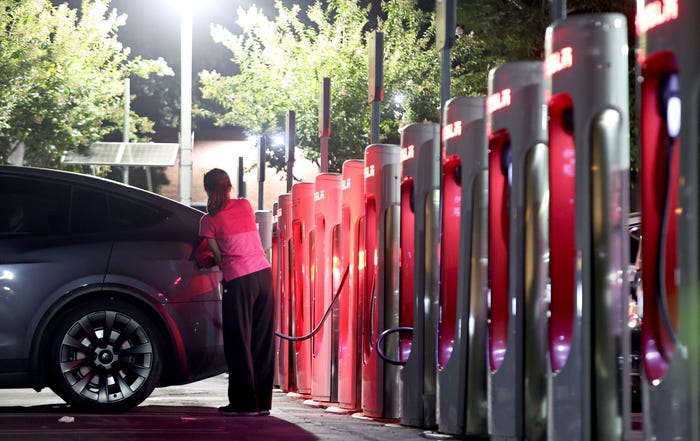Elon Musk Brain Chip Test Approved in CanadaElon Musk Brain Chip Test Approved in Canada
The wireless brain-computer interface technology would allow control of an external device with brain waves

Elon Musk’s Neuralink has received approval from Canadian health authorities to run the first international trial for its fully implantable, wireless brain-computer interface (BCI) technology.
A BCI is a system that allows a person to directly control an external device with their brain waves. It is hoped the technology could help paralysed individuals to communicate with the world.
The new trial, called the CAN-Prime study, could help establish the safety and functionality of Neuralink’s coin-sized BCI, which is implanted in the brain by a robot.
Neuralink said the greenlight from Canada marks an “important step towards developing innovative BCI technology that has the potential to transform the lives of individuals with neurological disorders around the world.”
It would build upon another ongoing U.S-based trial of the device, called the Prime study in which two patients with spinal cord injuries received the Neuralink implant. Musk recently said this trial was going “extremely well.”
Like the U.S. study, CAN-Prime would evaluate the safety of the implant and the surgical robot, as well as assess its initial functionality. The trial is open to Canadian residents with limited or no ability to use both hands due to amyotrophic lateral sclerosis (ALS) or cervical spinal cord injury.
The regulatory approval comes as Neuralink is expanding its presence in Texas, where the company is building a $14.7 million facility in Del Valle. The project will be a three-story building with offices, a machine shop and manufacturing space and is expected to be completed in May 2025, according to reports.
Musk already has a 500-000 square foot Starlink factory, an R&D facility for his tunnelling venture the Boring Company, as well as the headquarters of Tesla, in the state, and is planning to move his social media site, X, to the region.
As part of the expansion, Neuralink is expected to hire several roles for the facility, including engineers, software specialists and manufacturing technicians.
Further to this, Neuralink recently said it had received U.S approval to launch a new feasibility study into using its BCI technology with an experimental robotic arm.
On social media the company said it plans to cross-enroll participants in the study from the ongoing PRIME trial.
“We’re excited to announce the approval and launch of a new feasibility trial to extend BCI control using the N1 implant to an investigational assistive robotic arm,” Neuralink said in a post on Musk’s social media platform X.
The new facility, Canadian trial and feasibility study approval mark significant scaling for Neuralink, which was founded in 2016 with a team of eight scientists.
About the Author
You May Also Like








